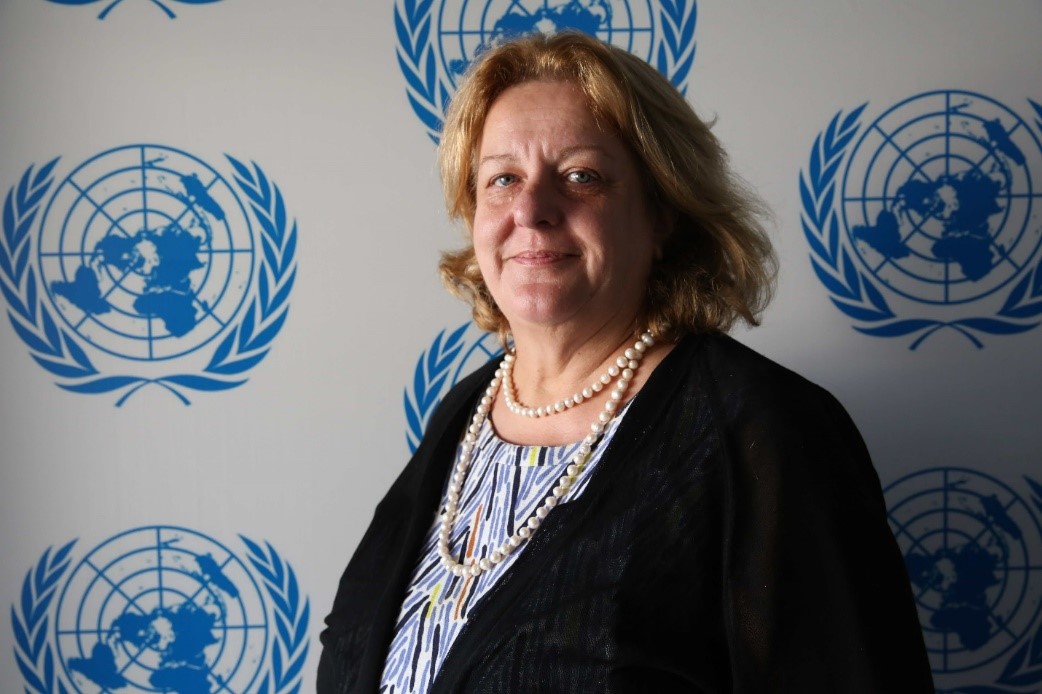|
Getting your Trinity Audio player ready...
|
Ms. Maria Ribeiro, United Nations Resident Coordinator for Zimbabwe has reiterated the importance of peace and underscored the fact that the UN Charter adopted almost 76 years ago, has an essential element on peace.
She made the remarks during a virtual Interface with the Parliamentary Portfolio Committee on Peace and Security via the popular online Zoom platform today.
“The very first Article of the UN Charter reminds us that the United Nations was formed to maintain peace and security, to develop friendly relations among nations, and to promote social progress, better living standards, and human rights. We often think of the UN´s mandate on peace as being peacekeeping, conflict resolution, the opposite to conflict, and the end of the war.
“But peace is more than that: it is creating the enabling environment for all to build sustainable livelihoods and social dynamics that promote human rights, equity, economic, social, and political opportunities for all. Peace is nurtured and precious and needs the buy-in of all. Hence the Secretary General´s Agenda on Prevention and the peace and human right dimensions in the SDGs and Agenda 2030,” Ms. Ribeiro said.
Under the 2030 Agenda, UN Member States committed to “promote peaceful and inclusive societies for sustainable development, provide access to justice for all and build effective, inclusive and accountable institutions at all levels”
Ms. Ribeiro said the UN remains committed to working closely with the people of Zimbabwe and the country´s authorities in support of initiatives aimed at building and maintaining peace. This is clearly enunciated in the 4th pillar of the upcoming United Nations Sustainable Development Cooperation Framework for 2022-2026.
The global theme for this years’ International Day of Peace is Recovering better for an equitable and sustainable world.
This theme focuses on the impact of COVID-19. It highlights the need for nations and communities to think creatively and collectively about how to build forward better from COVID-19 and how to build resilience and create a more just, equitable, inclusive, sustainable, and healthier Zimbabwe and the world.
The UN Resident Coordinator said COVID-19 remains a threat at all levels of society to peace and security.
“We have seen that there has been an increase in violence within homes and communities. There is an increase also in discrimination, hate speech, and misinformation. Confronting this Global Pandemic should serve as a reminder that in order to be able to recover, we must make peace and co-existence with one another a central priority.”
She invited stakeholders and members of the peace and security parliamentarian portfolio to join the UN Secretary General’s global campaign called #OnlyTogether.
“It is #OnlyTogether, through genuine solidarity and partnership, that we can overcome the pandemic and achieve the 2030 Agenda for Sustainable Development,” Ms Ribeiro added.






